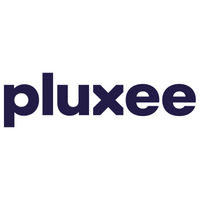Why the connection between reward, recognition and performance is getting stronger
Is the connection between reward, recognition and performance getting stronger?
Before tackling this question, reviewing the theory behind reward and recognition and exploring why it matters in the workplace is beneficial.
In its blog, How Maslow's Hierarchy of Needs Can Transform your Employee Engagement Strategy, Pluxee UK explains how Maslow's theory helps us better understand our employees.
It includes five areas:
1. Physiological: Our most basic needs – food, water, our homes. The monthly pay cheque ensures employees can meet these needs.
2. Safety: Our need to feel secure and protected. While this links with physical safety, it also covers the psychological and financial safety of a secure income.
3. Love and belonging: Many great relationships begin in the office, and the workplace allows us to feel connected to others.
4. Esteem: This need is directly linked to things that boost our self-esteem – such as recognition.
5. Self-actualisation: When we reach and fulfil our potential through opportunities to progress.
Maslow first created his theory in 1943, so employee recognition has always played a crucial role in boosting employees' morale and engagement.
The current landscape
The theory is just as vital to understanding the role between reward, recognition and performance today as it was more than 80 years ago.
The UK has gone through a pandemic, straight into a cost-of-living crisis, and it’s left a mark on our emotional health.
Mental ill health is the biggest cause of long-term sickness absence.
The lockdown affected our safety, preventing us from connecting with people, and given the increased use of food banks during that time, many Brits struggled to meet their physiological needs.
The Autumn Budget announced an increase in employer National Insurance contributions and the national minimum wage.
Today, redundancy levels are at the highest they’ve been in four years.
As businesses seek to control rising costs, many are turning to redundancies and recruitment freezes.
And, with more expected, many employees are feeling unsecure in their roles.
What connects reward, recognition and performance?
The negative impact on employees' need to feel safe has several consequences:
- Reducing workplace morale
- Lowering employee engagement
- Impacting feelings of loyalty
- Increasing stress and absenteeism
While some redundancies may be unavoidable, remember the longer-term impact they have on employees and strategise ways to keep the morale and wellbeing of those who remain high.
So how can reward and recognition help?
Clear and consistent recognition
Setting expectations and being consistent with what you recognise employees for is essential.
In challenging times, your recognition principles help employees understand what’s expected from them, helping them to create situations where their esteem will get a boost.
Career development
Career development isn’t only about getting a promotion or moving on to the next step.
Effective recognition helps employees grow every day.
Constructive feedback and recognition of a well-done job help employees fine-tune their skills, perform better, and fuel progression.
Feeling valued
Recognising and rewarding employees for their efforts makes them feel valued and appreciated.
In the current landscape, this helps them feel secure in their role.
When employees' values align with their business, it enhances their sense of belonging, boosting engagement and performance.
Financial rewards
At the end of January 2025, the median pay rise over the three months prior was 3%, approximately 1.5% less than previous years.
With the rising wage bill employers face, this reduction is unsurprising.
Still, employees face high costs of living, and ad hoc financial rewards will help them meet their physiological needs – their everyday essential expenses.
Financial rewards help reduce money worries, meaning employees can perform better.
Why the connection remains strong
Employers have to do more with less.
The climate calls for rewards, recognition and employee benefits to fill the gap and keep employees performing well.
In cases where employers have had to reduce roles, it’s essential to be mindful that those who remain with the business often take on more.
In such cases, reward and recognition are vital for ensuring they have the energy and motivation to help your business thrive.
Supplied by REBA Associate Member, Pluxee UK
Pluxee UK, is a leading employee benefits and engagement partner that opens up a world of opportunities to help people enjoy more of what really matters in their lives.








